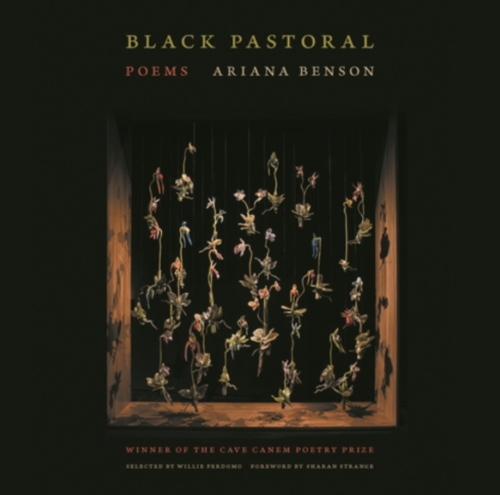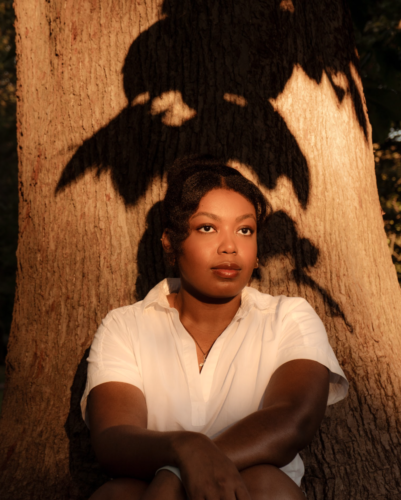“The history of Blackness is testament to the fact that objects can and do resist,” writes poet-scholar Fred Moten in his seminal essay, “Resistance of the Object: Aunt Hester’s Scream.” The essay arises from a scene captured by Frederick Douglass, in which his enslaved Aunt Hester, then hegemonically categorized as an “object,” is beaten by the “human” who possesses her, and wails and weeps in pain. His account records the fact that Aunt Hester did in fact have a voice to raise. Did in fact have speech, a language, even if it was one of suffering, one not recognized as human. Did have something to say.
From this essay, in which Moten also cites Saidiya Hartman’s “critical fabulation” theory, through which archival materials are used to reconstruct history, to “tell an impossible story and to amplify the impossibility of its telling,” I have patched together a poetics of Black persona. That is, a poetics that sees the object—inanimate in all the ways that make it “nonhuman”—as a thing that can, and does, speak. This is how, I submit, we can speak to the land, and (more importantly) listen as it speaks back.
The first time the land spoke to me through poetry, its message arrived in the form of a letter, not addressed to me, but from one lover to another. In “Dear Moses Grandy, …Love, the Great Dismal Swamp,” the murky, forested, ever-shrinking land of Southeastern Virginia (that was the backdrop of much of my childhood) writes to and commemorates her first lover: Moses Grandy, an enslaved man, who, in his single-person boat and with his rustic, handmade tools, carved canals out of the murk and morass that had scared many intrepid explorers away for good. Such beauty he found in her “dismal” depths that, as he later noted in his own slave narrative, “he would not have left [her] for heaven itself.” That comfort, that pull of desire between two forces, human or otherwise, but “natural” all the same—to me, that is love. That is (eco)poetry.
The resulting poem, then, is a work borne of the kind of listening I believe the ideas of object resistance and critical fabulation makes possible. A poem in which I imagine what the swamp may have wanted to say to Moses, all those years ago. May in fact have said, in a language we have yet to understand. Perhaps you see this use of personification as a kind of logical fallacy. But, in considering the histories of suffering that set the stage for such a scene, we must, too, consider which “logics” made both Grandy’s and the swamp’s predicament possible, and thus, which lines of thinking we may turn away from towards new ideas, new ways of life and understanding.
Reader, I encourage you, now, to turn to the land. To find records of its wailing, its crying out for help, and also, its joy and laughter and love. To use persona as a way to translate its voice into a language that our human ears recognize as worthy of a listen. Take what fact you can find, and from it, imagine a truth that feels possible. A truth that is worthy of poetic telling.




